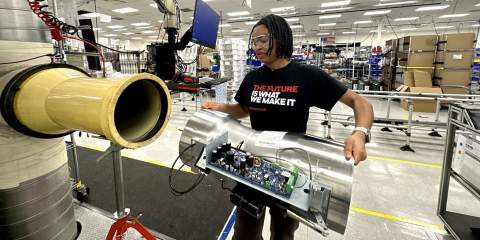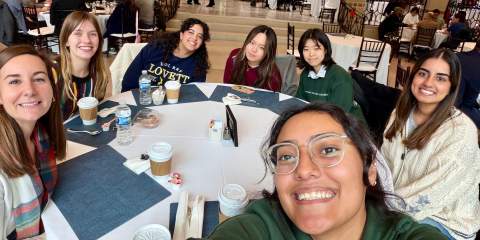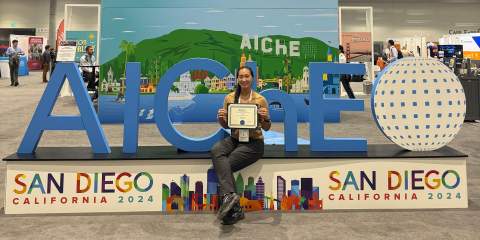What drew you to apply for the Elizabeth Lee Moody Undergraduate Research Fellowship in the Humanities and the Arts?
Coming into my junior year, I really wanted to explore my interests in the humanities further, especially by diving deeper into some of the questions I had acquired from the medical humanities and women’s studies classes I had taken the previous semester. I was particularly interested in exploring experiences of health and healing in non-biomedical institutions as a way to de-center hospitals as sites of medical care. In addition, I wanted to better understand and document narratives and health outcomes of minority women receiving therapy. However, since my prior experiences with research came from my work in a psychiatry lab or from a biomedical science research program, I wasn’t sure how or where to start with these questions I had. So, it was perfect timing that the Elizabeth Lee Moody Undergraduate Research Fellowship in the Humanities and the Arts started this year, as when I heard about it, I immediately was drawn to apply.
What hands-on work has the Moody Research Fellowship allowed you to engage in related to your interests in medical humanities and women’s studies?
With the Moody Research Fellowship, I have been able to work with Baylor Teen Health Clinic on expanding a project I had pursued studying the mental health and sexual health outcomes of minority patients receiving therapy. One of the key theories I learned from my seminar and practicum within my women, gender & sexuality studies major has been how to conduct feminist-engaged research. This theory essentially advocates for a research methodology that aims to bridge the gap between the researchers and their subjects by maintaining continuous dialogue and collaboration with the community. This allows research to be conducted ethically with the main priority of finding solutions with rather than for the research subjects. I have also been able to work with the clinic on a retrospective chart review while incorporating these methodologies, which has been a great hands-on experience related to the intersection between public health and humanities-based research!
“Our cohort is a special group of very passionate people I’m honored to learn and grow with, and I’m excited for what’s to come, as this has just been the beginning of it all!”
What has been your favorite experience in joining the Moody Research Fellowship? Which guest speaker or visiting professor have you enjoyed hearing from the most?
The cohort meetings have personally been my favorite part of the experience so far! During these meetings, I’ve gotten to meet people from all levels of experience in conducting humanities-based research. For example, in this program, I have been able to chat with Johannes von Moltke, a Germanic studies professor from the University of Michigan, about his recently published book, but also learn from students my age like Lily Wieland, a recent Rice graduate who has been navigating her medical humanities research on the ethics of end-of-life care. Each meeting has expanded my perspective on the breadth of questions and debates in the humanities, which has given me a unique space and frame of reference in which to structure my thinking in more meaningful ways. I don’t think I would have been able to find such a space to have this kind of dialogue elsewhere.
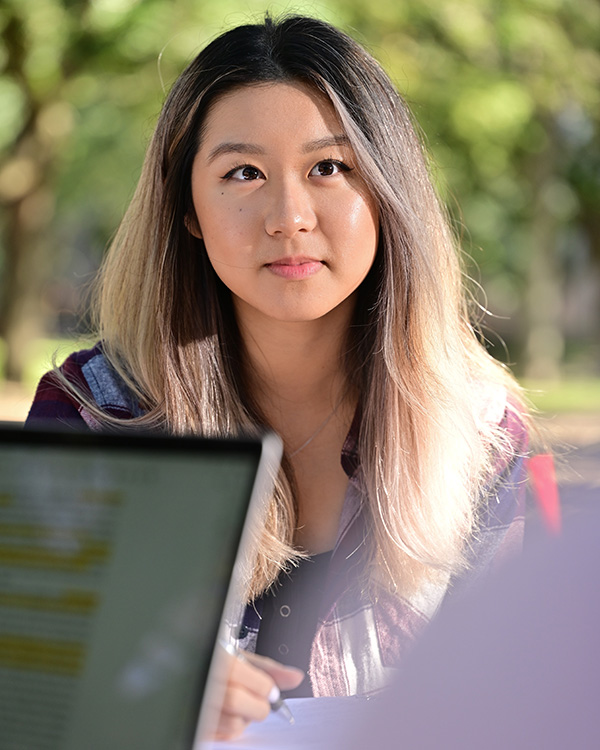
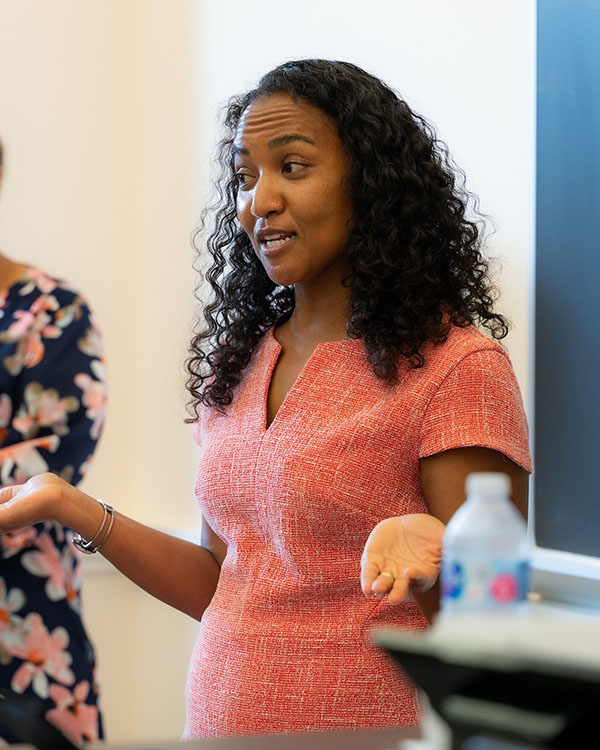
Beyond the meetings with guests, however, I also want to acknowledge the sense of community this program fosters among the fellows themselves. With each meeting, I’ve gotten to learn more about my peers and their work, and I find it so fascinating to learn about what excites others’ thinking and follow the steps they took in finding their particular passion. Also, since everyone in the cohort comes in with a variety of academic backgrounds, from music to biochemistry to Spanish and Portuguese, there is a hugely interdisciplinary and collaborative nature incorporated into our discussions. For example, when I bring up my research interests in minority women’s experiences of navigating mental health care, the sociology majors in our group are able to chime in with their thoughts on the infrastructures of healthcare systems. Our cohort is a special group of very passionate people I’m honored to learn and grow with, and I’m excited for what’s to come, as this has just been the beginning of it all!
“I’ve been able to gain so many valuable lessons and experiences through this fellowship.”
What advice would you give to prospective students who are interested in pursuing humanities research?
My biggest piece of advice would be: don’t be afraid to step out of your boundaries and comfort zones, especially in a community as collaborative and supportive as Rice! Coming in as a pre-medical student and filling my schedule with many basic science courses, I was unsure if I would be able to explore my interests in the humanities – after all, I knew very few students who pursued a path like that. However, I wanted to seek a stronger balance between my love for the sciences and the humanities. Yes, learning about various molecular reactions and their mechanisms is fascinating on one level, but I felt unsatisfied with the many unanswered questions I had about inequalities present in our healthcare system and among various disadvantaged populations – the natural sciences alone cannot fully answer or solve these issues. I knew I could explore these issues further through the discussions and seminars in humanities courses, as well as through research, so I took a chance and applied to this fellowship. I’m so glad I gave it a shot, as I’ve been able to gain so many valuable lessons and experiences through this fellowship. So, I’d say as a reminder to you all – if you are like me and have multiple but seemingly contrasting interests, do not think you must sacrifice one over the other! More often than not, Rice has an opportunity that will allow you to explore both and grow further as an multidisciplinary intellectual.
Special thanks to Linda for sharing her recent experiences with us. Linda is currently participating the Rice in Country program, supported by the Elizabeth Lee Moody International Fund in the Humanities and the Arts and led by faculty in the Center for Languages and Intercultural Communication. Keep an eye out for a post sharing her experiences in Spain this summer!
Keep Exploring
As a senior Mechanical Engineering student at Rice with three internships under her belt, Claire, Martel '26, has both the skills and confidence to succeed and conquer the corporate world. But her path wasn’t always easy! Discover how resources at Rice helped shape her journey as a future mechanical engineer.
Landing a research position doesn't have to be a cutthroat competition! From Google Forms to sheep brain dissection, explore how Jessie, Duncan '28, navigated Rice’s limitless opportunities to secure hands-on experience in an I/O Psychology lab.
For Aoife, Wiess ‘27, being an engineering major at Rice means endless opportunities. Explore how her involvement in the American Institute of Chemical Engineers chapter at Rice has shaped her journey!
Helpful Links
713-348-7423
admission@rice.edu
M-F 8:30 a.m. to 5 p.m. CT
